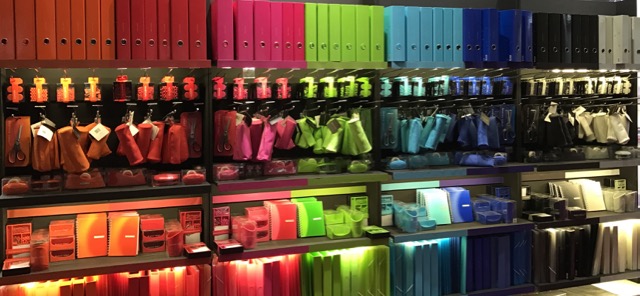Small and independent retailers often feel helpless when a big national retailer opens up nearby. There is no match for their range, buying power, advertising coverage or even news coverage.
The sheer size of a national competitor is what scares many smaller retailers. This is often enough for them to give up and close the business.
Giving up and running is the easy way out. There is no lesson learned, just an escape from the fear.
The alternative is to find out how to deal with the national retailer.
Here are five tips for small businesses on how to face and deal with a national retailer moving into the area:
- Don’t compete. By not talking about the competitor, pricing against them or pitching your business in any way, you separate yourself. While they may have similar products, it is unlikely that they are targeting your specific business so why target them? Focus instead on your own business.
Not competing should include not advertising price comparisons, not focusing on the competitor at staff meetings, not expanding your range to sell more of what they sell and not obsessing about them.
I was working with an independent retailer recently who decided to offer a product they sold which is also available in a nearby national retailer for 10% less than the sale price in the national retailer. This move gave the independent retailer a margin of 15%. In discussion I discovered that most of the customers who visited the independent retailer were unlikely to shop in the national retailer. So why compete on price?
If you know why customers shop with you, you have the opportunity of not giving up margin out of fear.
- Run a better business. From the moment you hear about a new national retailer coming to town, look at every aspect of your business for opportunities for improvement. From the back room to the font counter fine tune your processes, employee training, stock buying and the look of the business. Dramatically improve your business from the inside out. This will improve your business health and help you weather challenges which may lie ahead.
Too often, independent retailers wait until the national retailer is open to react. This is probably a year or two too late.
- Be unique. Look for ways to make your business unique. It could be on product range, operating hours, add-on services or something else. Embrace any opportunity to make your business unique. Even a unique niche range of products can give you traffic a big competitor will not chase. Try and focus on products which require a level of retail skill and knowledge to sell – national retailers have challenges hiring and retaining retail employees with specialist knowledge and skills.
- Engage the community. Connect with the community at every possible opportunity. Support local groups, speak at functions, get known as someone and a business who care deeply about the local community. Subtly make the connection that you are fortunate to be able to help because of your local business.
Being smaller and independent you are better able to personally engage with the community. You and your team are the business whereas a national chain will always be the corporate. They can throw money around locally, you can throw time, knowledge and more flexible assistance.
- Tell your stories. Your retail narrative, your stories, connect you with the local community. Tell these through the people you contact, your own blog, a Facebook page and in the pages of the local newspaper. Tell human stories about your business, the people who work in it and the local stories which connect with it.
Your stories could be about local community connection, convenience of shopping, commitment to range, personal customer service, product niche knowledge … there are many different narratives with which an independent retailer can connect. It is important that one you have your narrative you stick to is, that it inhabits your decisions, marketing and public presentation.
By acting early and in advance of a national retailer opening, you better position your business to weather their advertising and PR onslaught. Get in early, build a stronger business and understand that through this the new business in town will not be your competitor.


Recent Comments